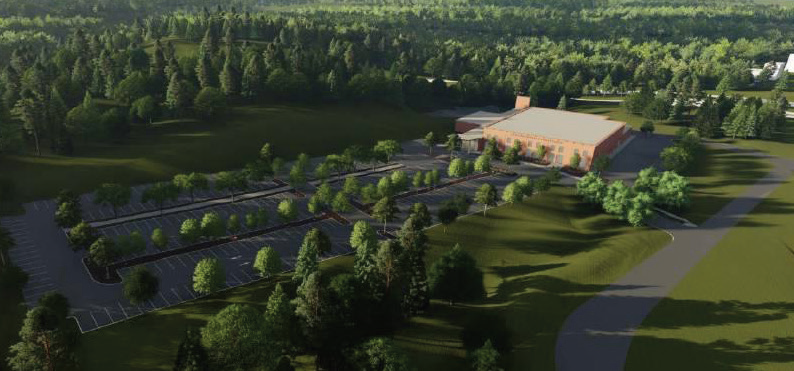The fight over Andy Sanborn’s proposed 43,000-square-foot casino on Loudon Road in Concord has reached the Supreme Court, as a Concord resident appeals a lower court’s ruling that upheld the Zoning Board’s approval of the project.
At issue before the New Hampshire Supreme Court is whether the Hillsborough Superior Court made a mistake by determining that Kassey Cameron, a Concord resident, does not have standing to contest the city’s approval of the casino.
The court ruling was based on her distance from the site, which was considered too far to show a significant impact from the casino.
According to court documents, Cameron lives 2,600 feet away.
Amy Manzelli, representing Cameron, said that the Superior Court and Big Step LLC, the company working with Sanborn, misinterpreted previous decisions, claiming that no case has ever recognized standing for a citizen living as far away as Cameron, despite the impact she will face.

Andy Sanborn, former state senator and owner of Draft Sports Bar & Grill and the Concord Casino, has proposed a 43,000-square-foot casino, bar and hotel on the city’s east side. (Courtesy photo)
“When you have a large project like the Concord casino, you are likely to have a large area around that of people that have standing,” said Manzelli. “She has the potential to be experiencing the increased need for public services, including emergency response and police response from that development.”
The dispute began last year when the Concord Planning Board approved the first phase of Sanborn’s project. The proposed development, situated near the intersection of Loudon and Sheep Davis roads and close to Interstate 393, would include a gaming hall, microbrewery and restaurant.
Located in the city’s gateway performance district — an area intended for retail, restaurants and offices — the project’s approval sparked immediate backlash.
Cameron, who lives around half a mile from the site, claimed that the Planning Board had failed to notify residents about a continuation of a public hearing and argued that the proposed casino did not belong in the designated zone.
At first, Cameron appealed to the Zoning Board, challenging the Planning Board’s approval of the casino. The Zoning Board agreed that Cameron had standing to appeal but said her appeal was late because she missed the 30-day deadline to appeal a decision after the project’s approval.
Cameron then took her case to the Merrimack Superior Court, challenging the Zoning Board’s decision on timeliness. But the case was transferred to Hillsborough Superior Court.
In court, Cameron faced opposition not only from the city but also from Big Step LLC. The company argued that Cameron lacked standing.
In June, the Superior Court ruled in favor of Sanborn, deciding that Cameron’s proximity to the casino site was insufficient to grant her legal standing in the matter.
Now, Cameron is looking to the New Hampshire Supreme Court to reverse the lower court’s decision.
After the Supreme Court accepted the case in August, it deemed the matter eligible for mediation. However, both parties have declined to pursue mediation and are opting to continue the legal battle instead.
Manzelli said that Cameron hopes the New Hampshire Supreme Court will rule as the Concord zoning board did, affirming that she does have standing.
— SRUTHI GOPALAKRISHNAN/CONCORD MONITOR